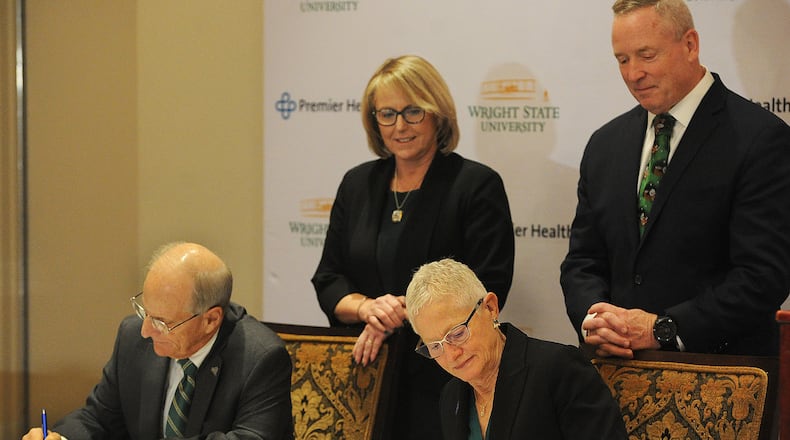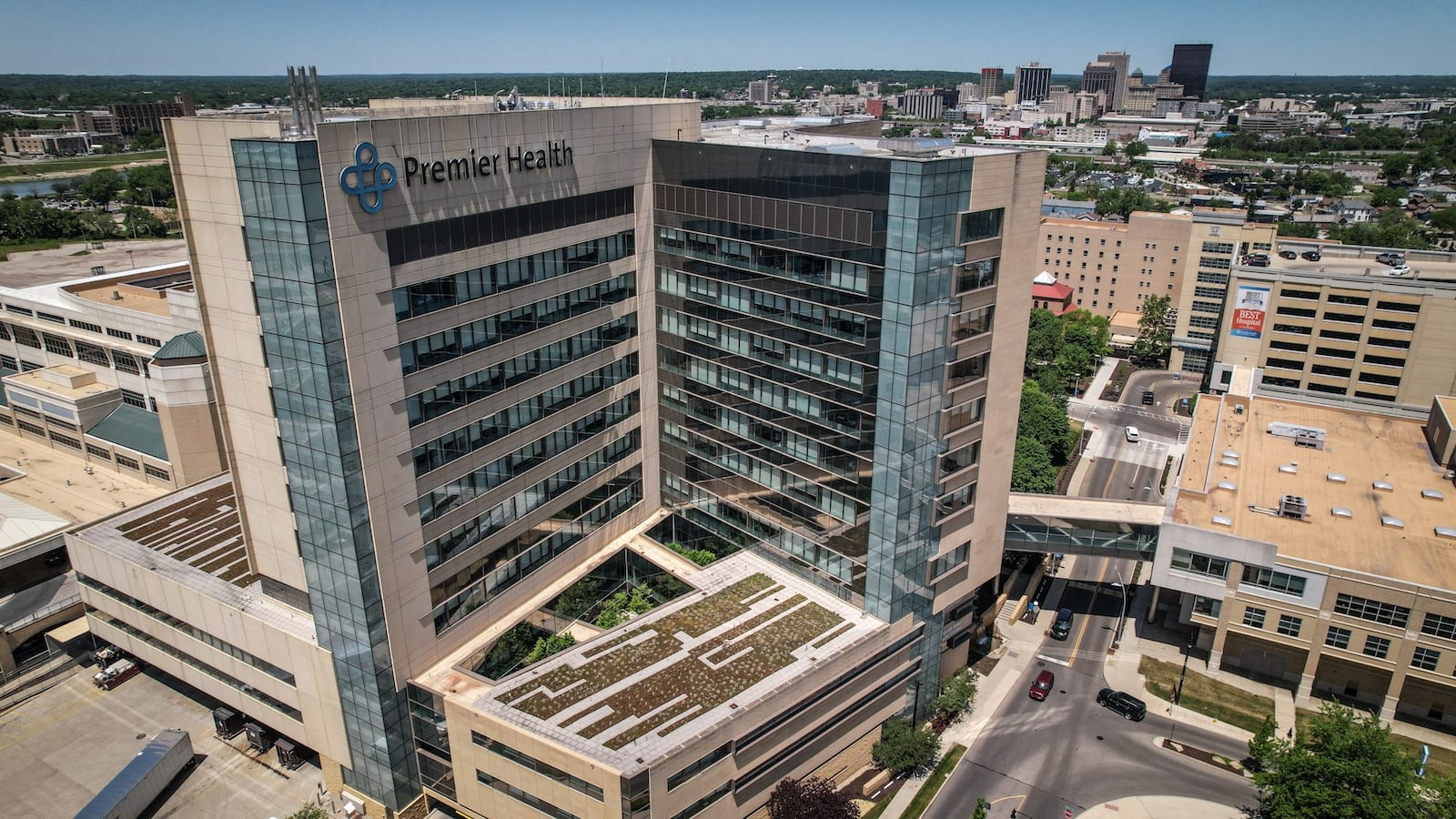“We will expand academic offerings for a multitude of in-demand allied health areas, which will not only lead to the expansion of clinical services for patients in the region, but also provide new employment opportunities for students interested in these healthcare fields,” Wright State University President Sue Edwards said.
Dayton is the only major metropolitan area in the state not to have an academic medical center, Edwards said Friday morning. Other integrated medical centers in Ohio include the Cleveland Clinic, and medical centers of both the Ohio State University and the University of Cincinnati.
By establishing such a teaching hospital in Dayton, leaders from both institutions say, patients will have access to more specialized care, and won’t have to travel to those other cities to get that specialized treatment.
“Is there a subspecialty that maybe a patient is feeling the need to go to Cincinnati or to Cleveland for?” Premier Health CEO Mike Riordan said as an example. “I’d love for them to go to Cincinnati and Cleveland — but go see a football game. For health care, they need to be close to home.”
Credit: JIM NOELKER
Credit: JIM NOELKER
As part of the agreement, the dean of Wright State’s Boonshoft School of Medicine will also serve as Chief Academic Officer at Premier Health, reporting to both institutions. Premier will also expand clinical training at Miami Valley Hospital, and pursue similar programs at Atrium Medical Center in Middletown and Upper Valley Medical Center in Troy.
The move also opens up additional clinical research opportunities for faculty and students at Wright State, and provides additional workforce training and potential professional hires for Premier, both in healthcare and other fields.
Wright State University and Premier Health made their first official academic affiliation agreement in 2021, with the intent of generating a stronger and clearer pipeline from the classroom to health workers rooted in the Dayton region. The agreement made each other preferred partners for medical residencies and opportunities for healthcare workers to further their education.
The 2021 agreement primarily applied between the Boonshoft School of Medicine and Premier, but this new arrangement applies to the entire university, across disciplines.
“The natural focus is going to be on the residents and the fellows, (of which) we train 300-plus,” Riordan said. “There are huge opportunities for internships. If you think of a health system like ours, we have business people, we have operations people, there are loads of opportunities for us to sync up.”
Expanding Wright State’s existing rural medicine program, primarily through Upper Valley Medical Center, was a major driving force of the new agreement, Riordan said, adding that the physician shortage is particularly prevalent in those areas.
“We can sit back and whine about it or we can develop programs that we can grow on our own,” he said. “We can train people from our community to stay in our community, and that’s our bet: that they will stay in the community.”
There is no timeline for implementation at this point, but the two organizations will further outline their business plans by April 30, 2024.
About the Author



